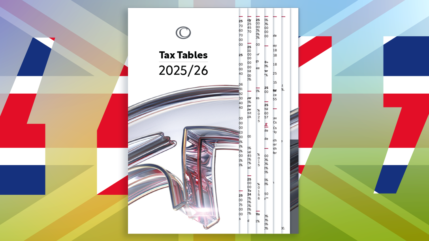Approaching the end of the current tax year means undertaking Capital Gains Tax (CGT) exercises for many of our clients. This is just one facet of an effective ongoing wealth management strategy.
My colleague Alex wrote an article recently, explaining our CGT exercises – the tax planning we undertake at this time of year. Such tax management is where we can add real value for our clients and their investments with Courtiers.
The past twelve months have been eventful for investment management. The sector’s been rocked to the core by certain fund managers and how they’ve structured their funds. The effects are still being felt (with Invesco Perpetual and Mark Barnett being the latest).
In October last year we touched on illiquidity and the Woodford debacle. This, and the issues we’ve seen since, do raise a point that if an investor experiences continuously poor performance from a fund, should they stick with it and continue to see losses? Or should they take the decision to get out while they can, even if it means paying CGT to do so?
I’m sure many investors in the Woodford Equity Income Fund would happily have paid CGT to get out of the fund, rather than suffer the losses incurred since the fund was wound up. Going back 20 years to the dot com bubble, which saw billions of $USD wiped off the value of US tech companies (sometimes overnight), how many investors at the time would have chosen to sell at the peak of the market and pay significant amounts of CGT, rather than losing 80% of their investments?
This is of course all in hindsight, but the most recent case from 2019 gives food for thought about clearing out poor performing investments and low quartile ranking stock from a portfolio.
Many investors have been led recently to question what they are actually investing into and whether or not to continue with underperforming stock. Why continue to hold consistently poorly performing funds in a portfolio? If you wouldn’t buy an asset today, why would you continue to hold it?
My colleague Josh mentioned in November that ‘Capital Gains Tax is a lovely problem to have’. You’ve made an investment and seen it grow, and it is surely better to pay 10% or 20% tax on something rather than zero tax on nothing, and this brings us on to another element of CGT. The UK benefits from some of the lowest CGT rates in Europe and this is not to be sniffed at. Denmark has the honour of having the highest CGT in Europe at 42%, followed closely by Finland at 34% and Ireland at 33%. A higher rate taxpayer in the UK pays 20% CGT. Since 2007, CGT rates have been lower than income tax rates , and at present, the UK rates of CGT are half what an individual would pay in income tax, whether they are basic rate or higher rate taxpayers. But how long will this last?
And remember, CGT is only paid on profits once the investment is sold.
Realising capital gains in unwanted or underperforming funds can lead to additional tax savings further along the line. A release of capital can then be used to invest into other tax planning and estate planning opportunities, such as a trust to mitigate against Inheritance Tax (IHT). It can potentially be better to pay CGT at 10% or 20% upfront on profits in order to save paying 40% Inheritance Tax. Remember that there are different (higher) rates of CGT in the UK for property sales.
The key point to highlight is that arranging, implementing and maintaining an effective investment mandate for our clients is fundamental in what we do at Courtiers. Managing investment risk has far-reaching benefits that enable us to take advantage of tax breaks where available and help clients achieve their goals in life.













